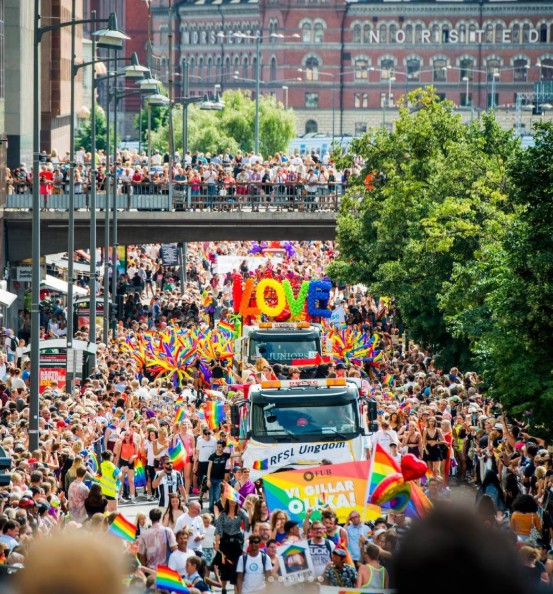LGBTQI rights in Sweden
Swedish law aims to protect your right to be who you are.
Laws and regulations have a big impact on everyday life. Over the last decades Sweden has taken important steps to ensure that the LGBTQI (lesbian, gay, bisexual, transgender and queer) community enjoys the same rights and opportunities as everyone else.
Some more recent laws that have been passed are gender-neutral wedding laws (2009), adoption rights for gay and lesbian couples (2003), insemination rights for lesbians (2005), and a prohibition of discrimination based on sexual orientation added to the Swedish constitution (2011).
LGBTQI progress in Sweden – some milestones
1944 Homosexual relations are legalised
1972 Sweden becomes the first country in the world to legally allow gender change
1979 The National Board of Health and Welfare (Socialstyrelsen) decides homosexuality is no longer a mental disorder
1987 Ban on discrimination against homosexuals by businesses and government officials takes effect
1988 Homosexuals included in the cohabitation law
1995 The Registered Partnership Act (domestic partnership law) passed
1999 HomO, an ombudsman for LGBT persons, is established (later brought in under DO)
2003 Constitutional change to outlaw hate speech based on sexual orientation
2003 Adoption rights for same-sex couples
2005 Insemination rights for lesbian couples
2009 Transgender identity and expressions included in anti-discrimination act
2009 Gender-neutral marriage law in effect
2011 Prohibition of discrimination based on sexual orientation is added to the Swedish constitution
2013 Mandatory sterilisation stricken from law regarding change of legal gender
2019 Stronger legal protection against hate crimes for trans people through inclusion in the Freedom of the Press Act, one of Sweden’s fundamental laws
2025 A new Legal Gender Recognition Act comes into force. The new law makes it possible to change legal gender from 16 years of age, with a parent's or legal guardian's approval.
Transgender rights
Transgender people face discrimination on the grounds of both gender and transgender identity or expression. Here, there's room for improvement, according to RFSL – the Swedish Federation for Lesbian, Gay, Bisexual, Transgender and Queer Rights.
In 1972, Sweden became the first country in the world to allow for change of legal gender. This move also contained some drawbacks, including mandatory sterilisation, which was only removed from the law in 2013.
In 2024, the Swedish parliament approved a new law that makes it possible to change legal gender from 16 years of age, with a parent's or legal guardian's approval. The law came into effect in July 2025.
Changes still await
If a person feels they have been discriminated against, they can turn to the Equality Ombudsman, a government agency that works against all kinds of discrimination. The ombudsman system – public agencies that represent the interest of individuals – has been in effect since 1809 in Sweden.
One type of case that the Equality Ombudsman deals with is how people are treated at healthcare centres. The law is clear in that discrimination is not acceptable, but ignorance and prejudices sometimes come into play. There is no requirement for healthcare professionals to have knowledge about LGBTQI-related issues.
Same-sex weddings in church
Religion is often cited as a reason why people object to homosexuality and transgender people. The national Church of Sweden, however, has taken a clear stance for love in all its forms.
Shortly after gender-neutral marriage laws came in effect in 2009, the Church of Sweden permitted same-sex ceremonies. Individual priests have the right to withstand but it is then up to the parish to find someone who will perform the ceremony.
The Church of Sweden also arranges Rainbow masses. They aim to mirror every person’s equal worth, also from an LGBTQI perspective. Malin Strindberg, priest at the Rainbow Mass, says:
‘Most priests are wise enough to understand that homosexual love is worth every bit as much as any other kind of love.’
Reaching out
One reason why Sweden is generally considered gay-friendly is that people continue to fight for further improvements.
In addition to RFSL, there are a number of other LGBTQI organisations that work with events, campaigns, information, education and support – often with international outreach. Stockholm Pride has its Solidarity Fund, founded in 2006, which supports pride events in other countries.
Many organisations in Sweden fight for the right for people who are persecuted in their home countries to get asylum in Sweden, with homosexual acts still outlawed in approximately 70 countries and territories around the world (Sweden legalised it in 1944).

